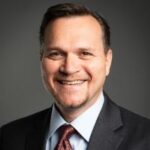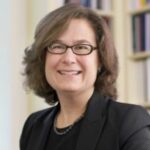Climate change litigation is once again in front of the U.S. Supreme Court. In recent years, there has been a flurry of lawsuits filed against energy companies and others, claiming they should be liable for alleged contributions to climate change effects. Most recently and for a variety of strategic reasons, the bulk of the present cases involve municipalities, counties, or states bringing lawsuits alleging state law-based causes of action in state courts – usually premised on novel theories of state public nuisance law, expanded views of state consumer fraud or deception statutes, or similar claims.
In October 2023, the Supreme Court of Hawaii rejected a motion to dismiss in one of these cases brought by Honolulu. This decision rejected the defense arguments, inter alia, that federal law displaces or preempts these kinds of lawsuits because a patchwork of state laws should not be allowed to govern global issues that are already addressed under federal law and because issues like energy policy and sensitive decisions about geopolitical issues of climate change requiring complex balancing decisions are exclusively within the purview of Congress and federal policymaking authorities. Thus, the Hawaii Supreme Court allowed Honolulu to proceed with its “climate deception” case in state court.
In February 2024, Sunoco, Royal Dutch Shell, and other defendants in the case filed a petition for certiorari asking the U.S. Supreme Court to review the Hawaii Supreme Court Decision, presenting, in essence, these questions:
- Whether federal law precludes state-law claims seeking redress for injuries allegedly caused by the effects of interstate and international greenhouse gas emissions on the global climate.
- Whether claims seeking damages for the effects of interstate and international emissions on the global climate are beyond the limits of state law and thus preempted under the federal Constitution.
- Whether the Clean Air Act preempts state-law claims predicated on damaging interstate emissions.
In this webinar, our expert panel analyzed, from diverse perspectives, the merits of the petition and the arguments surrounding it.
 Phil Goldberg
Phil Goldberg
Managing Partner, Shook, Hardy & Bacon L.L.P.
Phil Goldberg is the office managing partner of Shook in Washington, D.C. and co-chair of its Public Policy Practice Group. With more than 25 years of experience on high stakes and high-profile liability-related public policy, public affairs and public relations issues, he has become a leading voice for common sense liability policies. His practice involves counseling businesses and their trade associations on some of the most cutting edge liability issues of the day.
 Catherine M. Sharkey
Catherine M. Sharkey
Segal Family Professor of Regulatory Law and Policy, New York University School of Law
Catherine Sharkey is the Segal Family Professor of Regulatory Law and Policy at New York University School of Law. She is one of the nation’s leading authorities on the economic loss rule, punitive damages, and federal preemption. She has published more than fifty articles, essays, and book chapters in the fields of torts, business torts, products liability, administrative law, remedies, and class actions.
 John Yoo
John Yoo
Emanuel S. Heller Professor of Law; Faculty Director, Korea Law Center; and Faculty Director, Public Law & Policy Program, University of California at Berkeley School of Law
Professor Yoo is the Emanuel Heller Professor of Law at the University of California at Berkeley. He is also a Nonresident Senior Fellow at the American Enterprise Institute, and a Visiting Fellow at the Hoover Institution, Stanford University. Professor Yoo has published more than 100 articles in academic journals on subjects including national security, constitutional law, international law, and the Supreme Court.
 Donald J. Kochan, Moderator
Donald J. Kochan, Moderator
Professor of Law and Executive Director, Law & Economics Center
Donald J. Kochan is a Professor of Law and Executive Director of the Law & Economics Center (LEC). Professor Kochan’s scholarship focuses on areas of property law, constitutional law, administrative law, natural resources and environmental law, tort law, and law & economics.
Questions? Please contact the Civil Justice Academy team at ccjca@gmu.edu or by phone at 703.993.2566.
